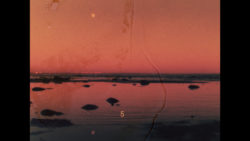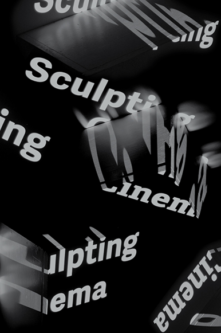Moving Homeward
Moving Homeward
Online Program. PROGRAM EXPIRED Wed. Nov. 10 to 17
Watch the Q&A!
Moving Homeward explores the use of the personal and familial archive as a tool for auto-ethnographic investigation and speculative reconstruction of home, family, and affections. In the context of migration, displacement, and loss, how can artists research, deconstruct, reconstruct and expand archives to work through grief, uprootedness, assimilation, and intergenerational trauma?
Curated by PD Directors Sylvia Nowak and Ana Luisa Bernardez.
JOIN US Q&A Nov. 17 at 7 pm est. with artists in attendance moderated by Leila Almawy, Otherhood Films.
Program
- Via Karelia, Elian Mikkola (Finland, 2021) 12:36 mins
- Green and Red, but Terracotta Red, Federica Foglia, (Canada, 2020) 10:00 mins
- Once Upon a Time/Ngày Xửa Ngày Xưa, Han Pham (Canada, 2020) 5:17 mins
- Kitchen.blend, Nataliya Ilchuk (Ukraine/France, 2021) 15:00 mins
- To Play with a Spinning Top, Jessica Fuquay (USA, XXXX) 12:27 mins
Co-presented by Archive/Counter-Archive, a project dedicated to activating and remediating audiovisual archives created by Indigenous Peoples (First Nations, Métis, Inuit), the Black community and People of Colour, women, LGBT2Q+ and immigrant communities. Political, resistant, and community-based, counter-archives disrupt conventional narratives and enrich our histories.
Moving Homeward Artists Q&A moderated by Leila Almawy (Nov. 17 2021)
Moving Homeward explores the use of the personal and familial archive as a tool for auto-ethnographic investigations and speculative reconstructions of home, family, and affections. In the context of migration, displacement, and loss, how can artists research, deconstruct, reconstruct and expand archives to work through grief, uprootedness, assimilation, and intergenerational trauma? Moving Homeward includes films by Elian Mikkola, Federica Foglia, Hân Phạm, Nataliya Ilchuck and Jessica Fuquay.
Elian Mikkola’s Via Karelia moves us into a journey through familial stories of displacement, trauma, and wayfinding to a place of ancestral identity. Via Karelia’s scenes can be sensorially evocative, reminding us of the smells in grandmother’s kitchen, the warmth of gathering around the fireplace, the sound of waves flowing onto the shore and the rustling of leaves.
With Federica Foglia’s Green and Red, but Terracotta Red, details are distorted, memories are questioned, and conflicting narrations take us through layers of images. As time moves onward and as the distance between our past and our present gets murkier, nostalgia weighs harder on us.
Hân Phạm’s Once Upon a Time/ Ngày Xửa Ngày Xưa, invites us into their private room and into an affective experience traversing a turbulent diasporic collective memory, searching for solace in the nostalgia of a childhood elsewhere. Phạm visually excavates footage from children’s television programming, travel vlogging, Vietnam War news reportage, and colonial ethnographic travelogues to blend together a complex retelling of self-identity amidst historical diasporic identity.
In kitchen.blend, Nataliya Ilchuck explores their digitized family archive, looking for specific spaces, objects, and images to bring into Blender (a 3D modelling software) where they are digitally modelled to recreate Illchuck’s grandparents’ kitchen. This work proposes a different way of working with the family archive by combining obsolete and new technologies and by questioning their limitations through carefully recreating a place that is no longer accessible to the artist. Through kitchen.blend, Ilchuck works through feelings of grief and loss to explore the possibilities and limitations of deconstructing, reconstructing and adding to one’s archive using digital technologies.
Similar feelings are explored in Jessica Fuquay’s To play with a spinning top, an experimental film that draws from the nonlinear strategies of home movies. The film highlights intimate domestic moments within a family as they care for their grandmother, who is soon to be displaced to an assisted living facility. The preservation and expansion of family archives are essential for continuing multigenerational immigrant stories and histories; through this film, Fuquay engages in both. To play with a spinning top concludes the Moving Homeward programme with a domestic moment where family members gather to watch home movies together, reflecting on what is seen and what is remembered.
Text by Sylvia Nowak and Ana Luisa Bernardez
What does your $10 membership support?
Truly, the intrinsic values of arts programming are varied and complex. Your membership allows us to contribute to the intellectual and critical understanding of experimental media through writing, discussions, screenings, essays, and interviews. In turn, our publications and engagements improve arts literacy, critical engagement, and intellectual curiosity in the sector, and in the public. Your membership allows us to support the production, presentation, and interest in radical and utterly experimental moving image work. Importantly, your membership allows us to provide reputable, professional, and paid presentation opportunities for the exhibition of marginalized works.


